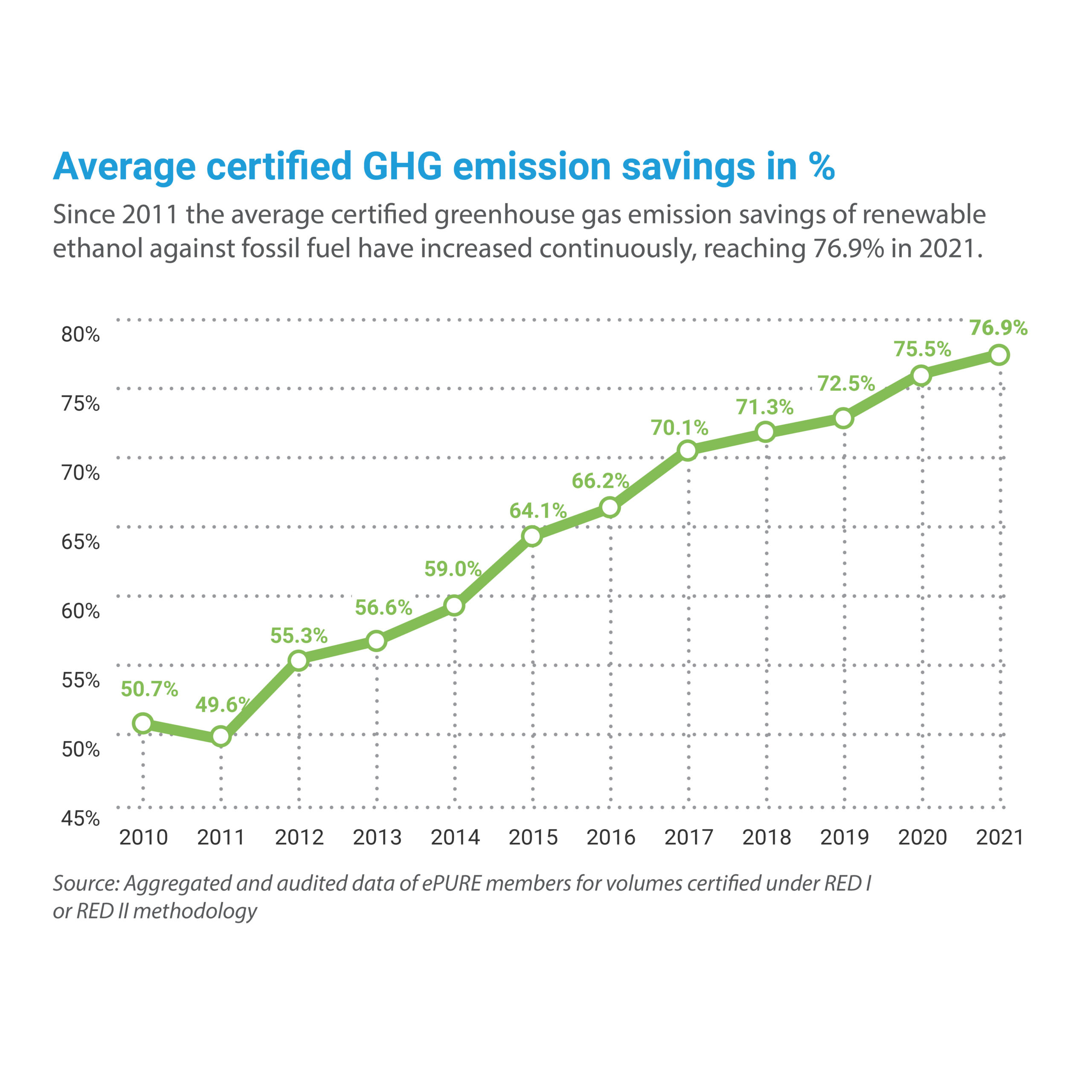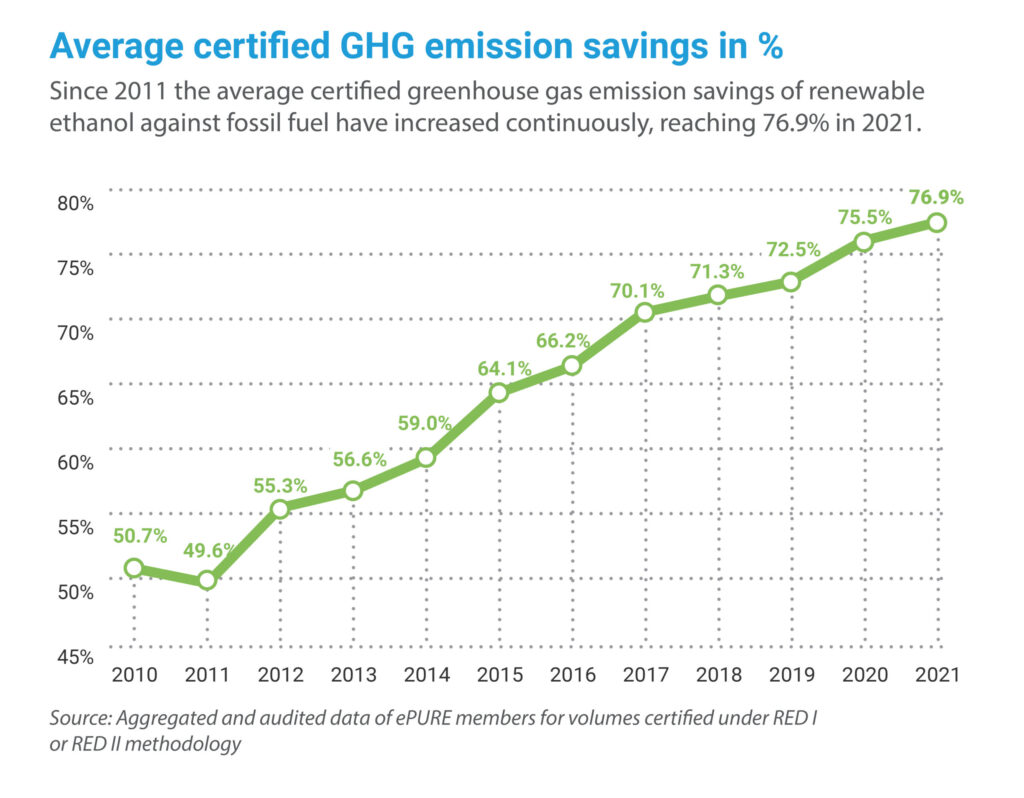How to cut car emissions now, not later: Renewable ethanol keeps getting better at reducing EU dependence on fossil fuel
 Reducing emissions from cars continues to be a difficult challenge for the EU, with road transport the one sector where progress on renewable energy has been slow and reliance on fossil fuel remains overwhelming.
Reducing emissions from cars continues to be a difficult challenge for the EU, with road transport the one sector where progress on renewable energy has been slow and reliance on fossil fuel remains overwhelming.
Fortunately, the EU has a solution that works now, uses existing infrastructure, is produced sustainably in Europe and allows all citizens to take part in the fight against climate change: renewable ethanol.
Production and use of renewable ethanol from ePURE members reduced GHG emissions by 77% on average compared to fossil petrol in 2021. That sustainability score has been improving continuously for the past 11 years and as EU biorefineries continue to innovate — producing food, vegetable protein feed, renewable fuel and biogenic CO2 for use in beverage and greenhouse applications — the GHG savings will continue to grow.
As the EU sets about determining the definition of CO2-neutral fuels in the coming months as part a new regulation on car and van emissions, they should take into account the significant GHG-reduction score of EU renewable ethanol.
Europe cannot afford to wait for new technologies to develop before making significant emissions reductions from the petrol and hybrid cars that will make up a majority of its fleet for years to come. The EU has an immediate, cost-effective, sustainable and socially inclusive solution that is produced domestically and requires no new infrastructure.
We should not ignore the potential of sustainable biofuels.
